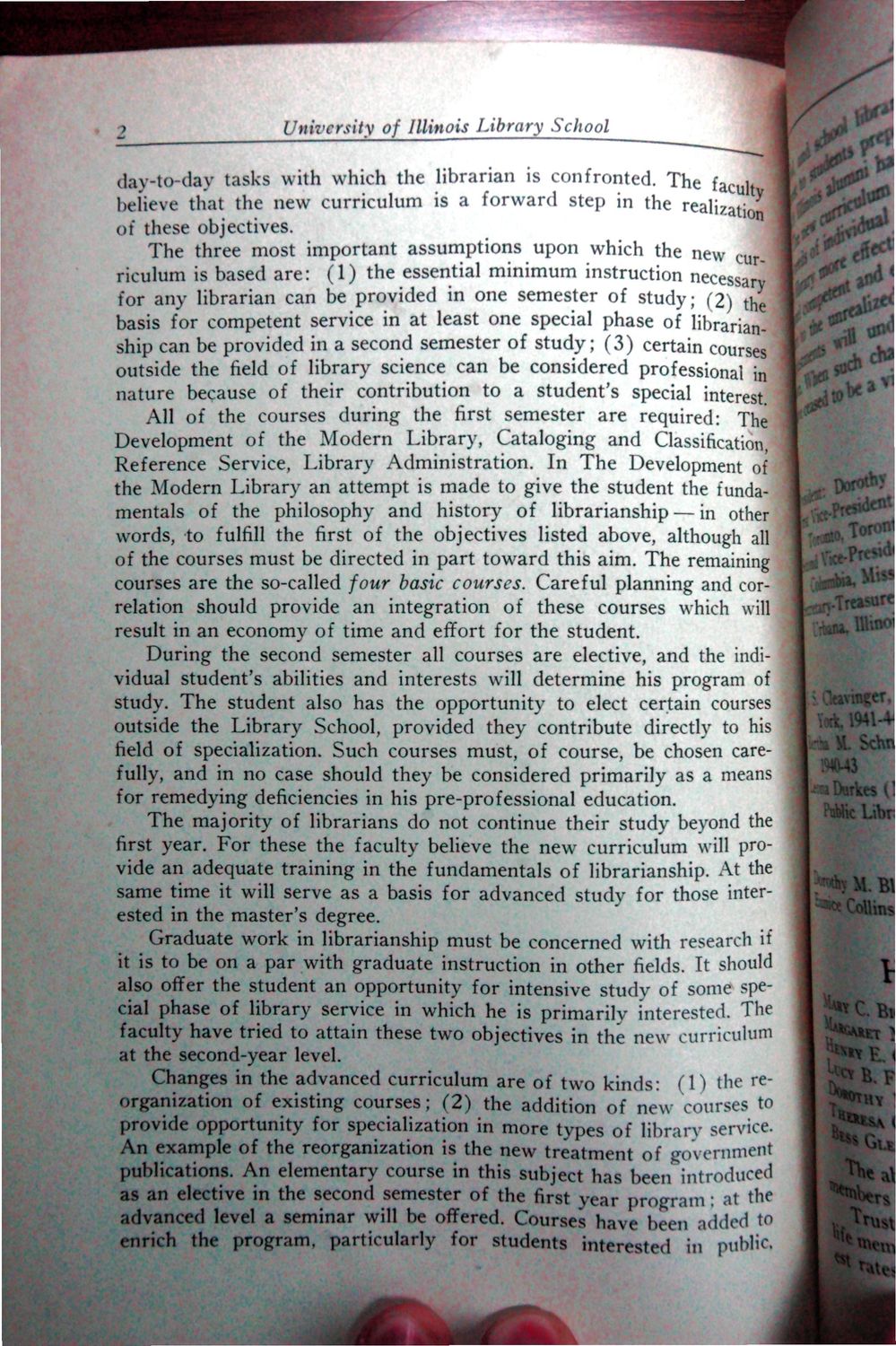| |
| |
Caption: UI Library School Alumni Newsletter - 34
This is a reduced-resolution page image for fast online browsing.

EXTRACTED TEXT FROM PAGE:
; University of Illinois Library School day-to-day tasks with which the librarian is confronted. The facult believe that the new curriculum is a forward step in the reali?^;/ ot these objectives. The three most important assumptions upon which the new curriculum is based are: (1) the essential minimum instruction necessary for any librarian can be provided in one semester of study; (2) the basis for competent service in at least one special phase of librarianship can be provided in a second semester of study; (3) certain courses outside the field of library science can be considered professional in nature because of their contribution to a student's special interest. All of the courses during the first semester are required: The Development of the Modern Library, Cataloging and Classification, Reference Service, Library Administration. In The Development of the Modern Library an attempt is made to give the student the fundamentals of the philosophy and history of librarianship — in other words, to fulfill the first of the objectives listed above, although all of the courses must be directed in part toward this aim. The remaining courses are the so-called four basic courses. Careful planning and correlation should provide an integration of these courses which will result in an economy of time and effort for the student. During the second semester all courses are elective, and the individual student's abilities and interests will determine his program of study. The student also has the opportunity to elect certain courses outside the Library School, provided they contribute directly to his field of specialization. Such courses must, of course, be chosen carefully, and in no case should they be considered primarily as a means for remedying deficiencies in his pre-professional education. The majority of librarians do not continue their study beyond the first year. For these the faculty believe the new curriculum will provide an adequate training in the fundamentals of librarianship. At the same time it will serve as a basis for advanced study for those interested in the master's degree. Graduate work in librarianship must be concerned with research if it is to be on a par with graduate instruction in other fields. It should also offer the student an opportunity for intensive study of some special phase of library service in which he is primarily interested. The faculty have tried to attain these two objectives in the new curriculum at the second-year level. Changes in the advanced curriculum are of two kinds: (1) the reorganization of existing courses; (2) the addition of new courses to provide opportunity for specialization in more types of library service. An example of the reorganization is the new treatment of government publications. An elementary course in this subject has been introduced as an elective in the second semester of the first year program: at the advanced level a seminar will be offered. Courses have been added to enrich the program, particularly for students intereste in pu blic >2 6 » *L Dor0 •tan. llUnoi >chn •KM3 •oa Durkt PuNic Lfor; mi B\ *«* Collins V J*» C. Bv *Y SL BF E< = T nut ^m k
| |